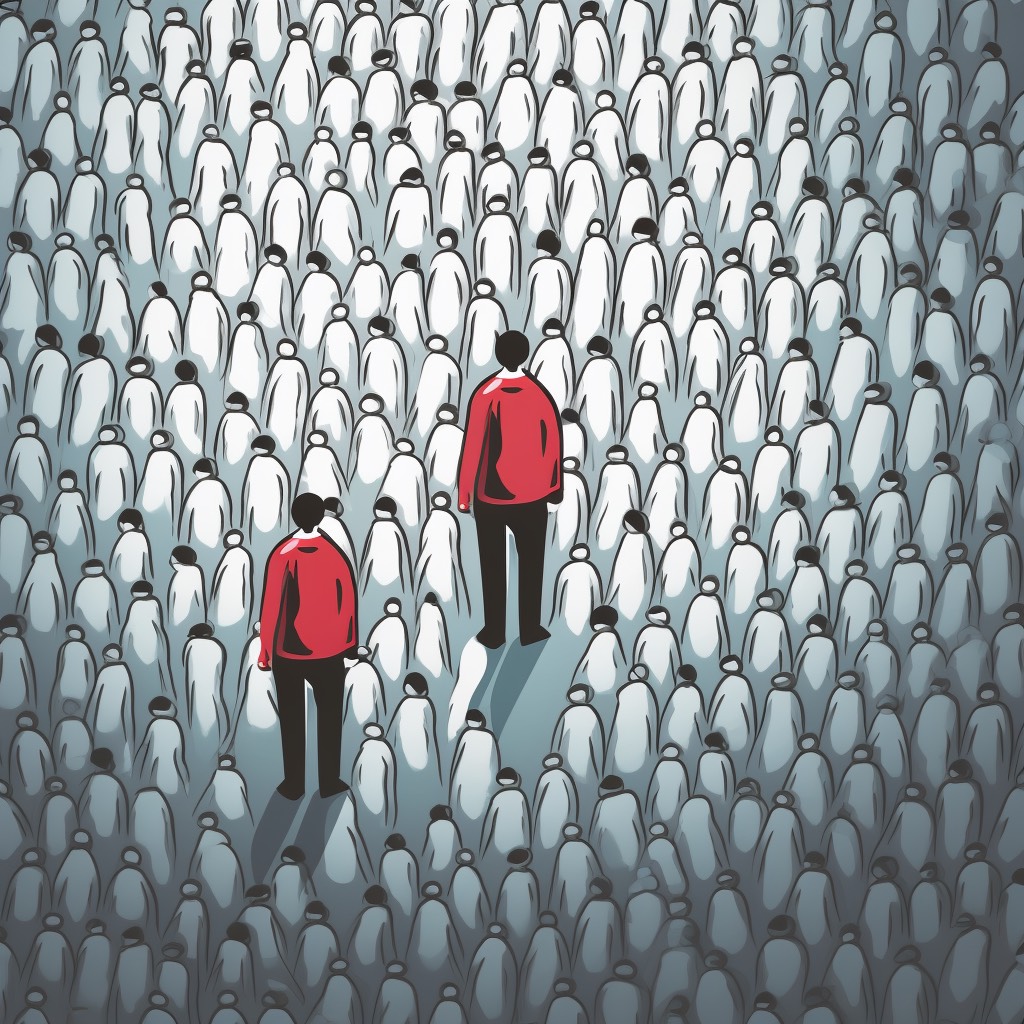“It’s easier to fool people than to convince them that they have been fooled.”
Mark Twain’s famous words are a reminder that once people have embraced a falsehood, it becomes increasingly difficult to persuade them of the truth.
However, which comes first – the individual or the crowd? Where does the birthplace of misconception lie?
Within the context of personal and collective misconceptions and their perpetuation, dismantling the illusions that people have come to accept can be a difficult task. This article aims to explore the reasons behind this persistence, shedding light on the complexities that contribute to the endurance of misconceptions.
The link between personal and public deception is an intricate one, rooted in human nature and fueled by individual biases and ulterior motives.
“Truth and falsehood have like aspects: similar bearing, style, and proceedings; we regard them in the same way. I find not only that we are remiss in defending ourselves from deception, but that we seek and desire to fall into its power; we like, as conformable to our being, to confuse our minds with what is of no value,” says Michel De Montaigne.
People tend to believe information that aligns with their preconceived notions, and in the realm of social media platforms, algorithms predominantly expose us to agreeable information and ideas. The impact of the personal is far-reaching, as misinformation can quickly spread through various channels, including social media platforms and traditional media outlets. Being aware of “media bubbles” helps keep our perspectives and opinions fresh and clear.
We yearn to express our viewpoints and sway others towards our own understanding. As personal deception infiltrates the public sphere, a culture of deceit takes hold, perpetuating a distorted reality. The cycle comes full circle when the delusion approved by the majority confirms all related misconceptions on a personal level, as we tend to accept long-held or widely accepted truths as irrefutable facts.
The longevity of a misconception often leads people to perceive it as truth. Misconceptions, once established, can persist over time, even in the face of contrary evidence. This cognitive bias, known as the “mere-exposure effect,” suggests that familiarity breeds acceptance. Consequently, old misconceptions may hold their ground due to their longevity, despite advancements in knowledge and understanding.
The notion that a deception is truthful because it is widely accepted is another logical fallacy known as argumentum ad populum or the appeal to the majority. The fact that a large number of people believe something does not automatically make it true.
We all possess an inherent vulnerability to adopt the values and opinions of the loudest voices, even accepting deception when it aligns with popular opinion.
The role of the information age in perpetuating and disseminating both accurate and inaccurate ideas is not something unheard of in pre-digital eras. Information can spread rapidly and widely, leading to the amplification of both true and false beliefs in any given era. But the abundance and accessibility of information can contribute to the persistence of incorrect or misleading ideas.
Facts are less persistent than ideas, even when they are proven to be incorrect or outdated. Throughout history, certain misconceptions or false beliefs have managed to endure over time, sometimes due to factors such as cultural, social, or psychological influences.
Such as the belief in geocentrism. For centuries, the prevailing view held that the Earth was at the center of the universe, with celestial bodies orbiting around it. Influential figures like Ptolemy supported this geocentric model, shaping scientific and religious understanding. However, with the advancements made by Nicolaus Copernicus and Galileo Galilei, the heliocentric model gained acceptance, debunking the long-held misconception of geocentrism. This example highlights how deeply ingrained misconceptions can persist, despite evidence to the contrary.
But wait for it… The rejection of geocentrism and the acceptance of the heliocentric model spanned… a bit more than several centuries. From the time of the first compelling evidence challenging the geocentric view to its official acceptance, it took approximately two millennia.
The reasons why certain ideas withstand scrutiny is because ideas are stronger than facts. Despite advancements in knowledge, deeply ingrained beliefs can persist, perpetuating the cycle of personal and collective misconceptions, making them resistant to change.
Statistics play a vital role in discerning truth from fiction, providing the means to analyze data objectively and identify patterns or correlations. However, misinterpretation or manipulation of statistics can contribute to the perpetuation of misconceptions. A prime example is the misrepresentation of data in debates surrounding contentious issues such as gun control or immigration. Selective use of statistics or cherry-picking data can distort the narrative, leading to biased conclusions and reinforcing collective misconceptions. The availability of vast amounts of data in the digital age requires statistical literacy to discern reliable information from misleading or false claims.
But who or what can get us out of this mess?
“Truth always rests with the minority, and the minority is always stronger than the majority, because the minority is generally formed by those who really have an opinion, while the strength of a majority is illusory, formed by the gangs who have no opinion—and who, therefore, in the next instant (when it is evident that the minority is the stronger) assume its opinion, which then becomes that of the majority, i.e., becomes nonsense by having the whole [mass] on its side, while Truth again reverts to a new minority.” In Søren Kierkegaard’s words, we should welcome the less popular truths into our lives.
The minority plays a crucial role in countering the persistent groupthink of the majority.
The concept of groupthink, coined by social psychologist Irving Janis, explains how individuals within a group prioritize consensus and harmony over critical thinking, often leading to flawed decision-making. The phenomenon of “fake news” included.
In this quest for truth, Pollpapa encourages all contributors to voice their views, even if they contradict commonly held beliefs, without fear of judgment or suppression. Pollpapa is a place for open dialogue and critical thinking; a tool for breaking the cycle of deception and enabling a more informed and nuanced understanding of the world.
Read also

One sure way to certify our human origin and our real existence is to feel free to exhibit our imperfections, to admit that we don't know something, even when we should have. In essence, we must become more comfortable with asking questions.





